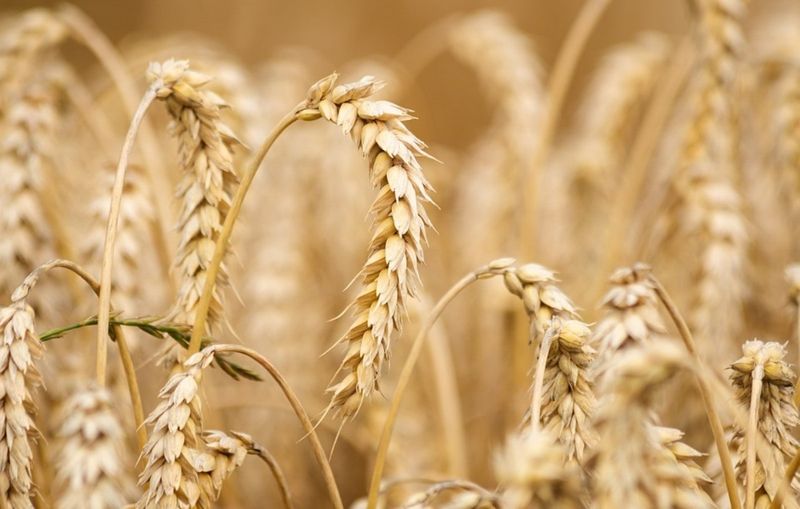UN agencies unite to strengthen Türkiye’s wheat sector

FAO, IFAD and WFP join forces to produce a comprehensive analysis of the Turkish wheat sector with the aim of establishing a more resilient food system.
The COVID-19 pandemic and the subsequent invasion of Ukraine by the Russian Federation have highlighted the strategic importance of food and agriculture at both the global and national level. Nations have prioritized sustainable food production and agricultural practices to prevent food crises and maintain national security. At the top of the list of global food priorities is wheat.
The Food and Agriculture Organization of the United Nations (FAO), the International Fund for Agricultural Development (IFAD) and the World Food Programme (WFP) have joined forces to produce a comprehensive analysis of the Turkish wheat sector with the aim of establishing a more resilient food system, in the process identifying challenges facing wheat production and commerce.
The project is entitled “An Analysis of the Turkish Wheat Sector: Establishing a Resilient Food System” and is funded by the United Nations Joint Fund for Sustainable Development Goals and conducted in close collaboration with the Ministry of Agriculture and Forestry of Türkiye and its institutions at the central and field levels.
Within the scope of the project, a report will be prepared drawing on field interviews with stakeholders of the wheat industry. A road map will also be developed and policy recommendations formulated for the industry to increase its resilience in the light of current local and global challenges.
At the first Steering Committee meeting of the project, Viorel Gutu, FAO Sub-regional Coordinator for Central Asia and FAO Representative in Türkiye, described how the events of the last three years have disrupted wheat production and supply chains. He also emphasized Türkiye’s position as an essential actor in both wheat production and commerce. Gutu explained that the joint project will produce a detailed analysis of the Turkish wheat sector, which will then form the basis of a roadmap to achieve healthier and more sustainable wheat production and a stronger and more productive wheat sector. Within the scope of the project, studies and surveys have already been carried out in regions that together account for 85 percent of Türkiye’s wheat production.
During an opening speech, Parvathy Ramaswami, World Food Programme (WFP) Türkiye Country Director, stated that “Türkiye is becoming an increasingly important country in terms of production, commerce and trade networks” and emphasized that “this project will play a crucial role in improving sectoral, commercial and humanitarian conditions.”
Taylan Kıymaz, Programme Manager of IFAD, highlighted the importance of wheat as a primary product and a significant element of Turkish cuisine. He also underlined the importance of the project for elevating the situation of female workers and addressing the socio-economic issues they face, noting that specific obstacles could be dealt with through the development of the roadmap.
Alvaro Rodriguez, United Nations Resident Coordinator in Türkiye, extended his thanks to the UN agencies and the Government of Türkiye for their collaboration on this important project, which he noted would “directly address several of the Sustainable Development Goals of United Nations, in particular: No Poverty (SDG 1), Responsible consumption and production (SDG 12), and Climate Action (SDG 13).” He also highlighted the need to transform food systems to ensure future food security.
Volkan Güngören, Deputy Director General for EU and Foreign Relations at the Ministry of Food Agriculture and Livestock, underlined the importance of bread in Turkish culture and the significance of the project from this perspective. He also explained that: “the transformation of food systems requires high levels of cooperation at the national and a global level”. He affirmed that “the Ministry will uphold its responsibilities to ensure the success of the project which it believes will become a model practice –strengthening the production and supply chain and paving the way for new areas of investment.”
After the opening speeches, Prof. Dr Erdoğan Güneş from the FAO team explained the purpose and objectives of the project and provided details of field studies conducted within its scope.
Philipp Randall from WFP emphasized that a primary aim of the project is to determine why Türkiye’s wheat production has been fluctuating recently, pointing out that the wheat market is influenced more by production than consumption, and that the primary determinant of prices is the volume of output.
Fazıl Düşünceli, FAO Agriculture Officer the lead project specialist, stressed that all data gathered and disseminated through the project will be produced through fieldwork using scientific methods. In describing the process followed and activities carried out to date, Düşünceli emphasized the valuable contributions of sector representatives, including producers, non-government organizations and public institutions.
Finally, Ayşegül Selışık, Assistant Representative in Türkiye, thanked everyone who had contributed to the project so far, noting that “the resulting report that will enable the creation of an evidence-based roadmap”. She continued: “When we started on this journey, we started with small steps and planned to expand as we moved forward. The results now show that we are progressing towards our goals and objectives.”
Tags: agriculture, FAO, IFAD, food system, WFP, Türkiye, wheat sector
Read also
Sergey Feofilov, UkrAgroConsult, will speak at the 5th CeMI Commodities Exchange M...
Bulgaria allocates 150 million euros for subsidies to farmers affected by imports ...
Speculative rise in wheat prices continues for three weeks in a row
Malawi launches soybean exports to China
Experts predict a decline in the EU rapeseed harvest
Write to us
Our manager will contact you soon











